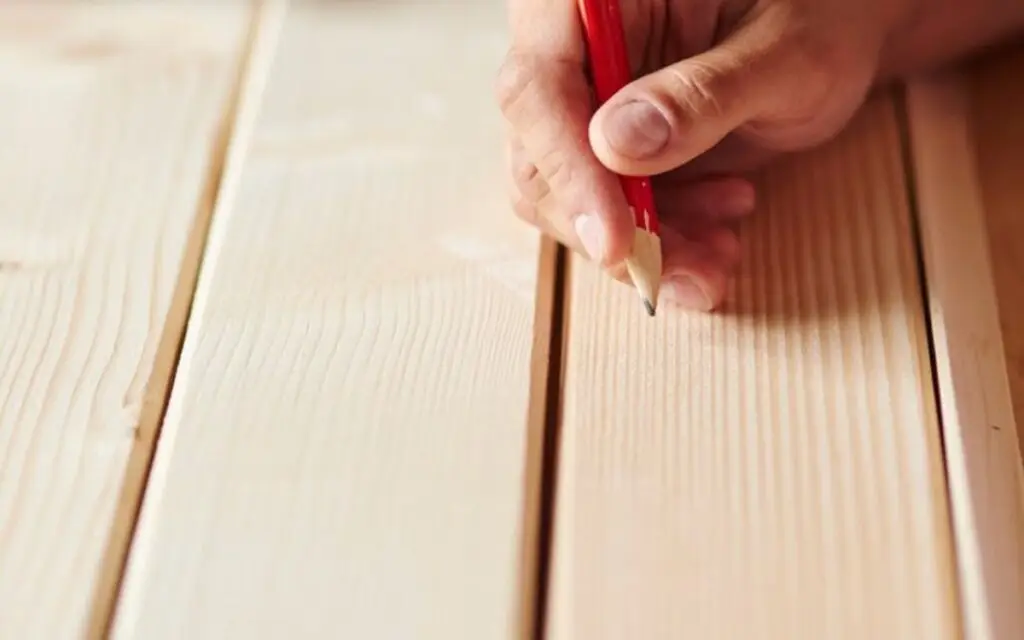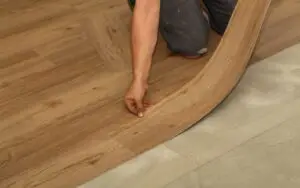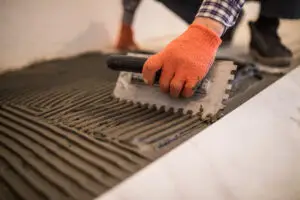Breaking Down the Cost of Flooring Installation
Factors Influencing Flooring Installation Costs
Type of Flooring Material
The type of flooring material you choose is one of the most significant factors impacting the total cost. Different materials vary widely in price, ranging from budget-friendly options like vinyl and carpet to more expensive choices like hardwood and tile. The cost of the material can account for a significant portion of the overall project budget, so understanding the differences is essential.
Labor Costs and Regional Variations
Labor costs can vary depending on your location and the experience of the installation professionals you hire. Metropolitan areas tend to have higher labor costs than rural areas, and more experienced installers will typically charge more for their services. It’s important to get multiple quotes to ensure you’re getting a fair price for your area.
Subfloor Preparation and Additional Work
The condition of your subfloor will also impact the total cost. If your subfloor is uneven, damaged, or requires extensive preparation, this will add to both the time and cost of the overall project. Additional work may include the removal of old flooring, underlayment installation, or moisture mitigation, which can all increase the final expense.
Calculating the Cost for 1000 Square Feet
Average Material Costs Per Square Foot
Material costs for flooring vary greatly. For example, vinyl flooring might range from $1 to $5 per square foot, while laminate flooring ranges from $2 to $8 per square foot. Hardwood can vary from $5 to $15+ per square foot, and tile can be anywhere from $3 to $20+ per square foot. The cost of carpet can vary between $2 and $10 per square foot, depending on the quality and type. Knowing these price differences can help guide your flooring choices.
Average Labor Costs Per Square Foot
Labor costs for flooring installation also vary widely based on the flooring type, complexity, and regional rates. On average, labor costs can range from $1 to $8 per square foot. Simple installations, such as vinyl or carpet, will often have lower labor costs than more complex installations, like hardwood or tile. Therefore, it’s always best to get multiple quotes.
Total Estimated Cost Range
Based on the average material and labor costs, the total cost to install 1000 square feet of flooring can range from $2,000 to $25,000 or more. It’s always best to get a professional quote that can better assess your project and provide a more accurate estimate. By getting a detailed quote, you will not only know how much the final cost will be, but you’ll also have a better understanding of where your money is going.
Detailed Cost Breakdown by Flooring Type
Vinyl Flooring Installation Costs
Cost of Materials for Vinyl
Vinyl flooring is one of the more affordable options, with material costs ranging from $1 to $5 per square foot. Sheet vinyl tends to be on the lower end of this scale, while luxury vinyl planks and tiles may be closer to the higher end. The type of vinyl, the thickness, and any added features will all influence the final material cost.
Cost of Labor for Vinyl Installation
Labor costs for vinyl flooring installation are typically lower compared to other options. This can vary based on the complexity of the install, but generally range from $1 to $4 per square foot. Factors such as the type of subfloor, room size, and any specific preparation that may be required will affect the labor costs.
Laminate Flooring Installation Costs
Cost of Materials for Laminate
Laminate flooring material costs typically fall between $2 and $8 per square foot. The cost will vary based on the quality, thickness, and design of the laminate planks. High-quality laminates that mimic the look of hardwood will generally cost more than basic laminate options.
Cost of Labor for Laminate Installation
Labor costs for laminate installation are generally around $2 to $5 per square foot. The labor costs will depend on the installation difficulty, which may include cutting around corners and dealing with irregular spaces. Professional installers can accurately assess this and give an accurate quote.
Hardwood Flooring Installation Costs
Cost of Materials for Hardwood
Hardwood flooring is typically one of the more expensive options, with material costs ranging from $5 to $15 or more per square foot. Factors that contribute to the higher cost include the type of wood, plank width, and finishing style. Solid hardwood is usually more expensive than engineered hardwood.
Cost of Labor for Hardwood Installation
Labor costs for hardwood installation are also higher than other flooring types. Depending on the location and installer’s experience, labor can range from $3 to $8 per square foot. This is a complex installation requiring specialized tools and skills, which is why a professional is always recommended.
Carpet Installation Costs
Cost of Materials for Carpet
Carpet material costs can vary significantly, from $2 to $10 or more per square foot, depending on the material, pile height, and style of the carpet. Lower-end options may be more budget-friendly but may not be as durable as premium options.
Cost of Labor for Carpet Installation
Labor costs for carpet installation typically fall between $1 and $4 per square foot, making it one of the more affordable options in terms of labor. However, the labor cost can vary depending on the preparation of the subfloor, the complexity of the install, and the type of padding used.
Tile Flooring Installation Costs
Cost of Materials for Tile
Tile flooring materials range widely, from $3 to $20+ per square foot, depending on the type of tile (ceramic, porcelain, natural stone), size, design, and quality. The style and cost of tile can have the most dramatic range of all of the options, making it important to accurately choose your tile to suit your needs and your budget.
Cost of Labor for Tile Installation
Labor costs for tile installation are generally higher, ranging from $4 to $10+ per square foot due to the complexity and expertise required for proper installation. Cutting tiles to fit the area and preparing the subfloor properly requires skills that a DIYer typically does not have. Therefore, professional installation is the best way to ensure your tiles are properly and professionally installed.
DIY vs Professional Installation: Impact on Cost
The Hidden Costs of DIY Flooring Installation
Unexpected Expenses and Errors
DIY flooring installation can often lead to unexpected expenses. Mistakes like improper measurements, incorrect subfloor preparation, or poor installation can result in having to purchase additional materials or having to hire a professional to fix the errors. These expenses are often not calculated in the DIY budget, leading to a higher cost overall.
Time Investment and Potential Delays
DIY projects can be very time-consuming, especially if you are new to the process. The project can quickly take longer than planned, causing frustration, and even delaying the completion of other projects. This time commitment, coupled with potential delays, can be something that you have not properly planned for.
The Value of Professional Flooring Installation
Expertise and Efficiency
Professional flooring installers have the expertise and efficiency to complete the project quickly and accurately. They have the skills, tools, and training to avoid common mistakes and ensure a long-lasting installation. Their expertise can minimize the risk of delays or errors that will ultimately cost more time and money.
Warranty and Long-Term Cost Savings
Professional flooring installation often includes a warranty on both the materials and labor. This provides peace of mind knowing that if any issues arise, they will be addressed quickly and professionally. In addition, proper installation can prevent premature wear and tear, saving you on repair and replacement costs in the long run.
Case Study: DIY vs Professional Installation Cost Comparison
Examples of Costly DIY Mistakes
A homeowner decided to install hardwood flooring on their own to save money. However, they miscalculated the amount of material they needed, cut the planks incorrectly, and damaged several of them, requiring more to be purchased. The DIY project took much longer than planned, and ultimately, they had to hire a professional to fix the mistakes at a cost they had not originally planned for.
Benefits of Transparent Professional Estimates
In contrast, a homeowner hired a professional installer for their tile flooring project. The professional provided a detailed quote, including material and labor costs, and completed the job efficiently. The homeowner did not experience any surprises in cost, and was confident knowing that the work was done professionally, on time, and within budget.
Tips for Saving on Flooring Installation Costs
Choosing the Right Flooring Material
Balancing Cost and Quality
It’s important to balance cost and quality when choosing your flooring material. While it may be tempting to select the cheapest option, it may not be the most durable or long-lasting. It’s important to consider how durable it needs to be and the type of traffic it will endure. A professional installer will help you make the best decision.
Considering Long-Term Durability
Consider the long-term value of your flooring choice. Investing in a slightly more expensive material may save you money in the long run by preventing the need for premature replacement. Also consider the maintenance required for each option, as some materials are easier to clean and maintain than others, saving you time and effort as well.
Planning and Preparation
Accurate Measurements and Material Calculations
Accurate measurements are crucial for determining the amount of material needed. Improper calculations can lead to purchasing too much or too little, causing both unnecessary expenses or delays. A professional installer will have the proper tools and knowledge to accurately measure the space, avoiding any errors in your material order.
Addressing Subfloor Issues
Addressing any subfloor issues, before beginning the installation, is essential. Ignoring an uneven subfloor can cause problems with the finished floor, requiring costly fixes later. A professional will address and fix any issues with the subfloor before beginning the installation, ensuring a better and longer-lasting product.
Professional Installation Benefits
Utilizing Expertise for Cost Savings
Professionals utilize their expertise to avoid costly mistakes that would end up costing you more money. They will also ensure you have the correct materials and will properly install the floor, which also ensures a longer-lasting product.
Maximizing Value with Quality Work
Professional installation maximizes the value of your investment by ensuring the job is done correctly the first time. You’ll have the peace of mind of knowing your floor was installed professionally and correctly. Their warranties and experience mean that you can rest easy knowing that you won’t have to deal with unforeseen issues or costs.
FAQs & Answers
Budgeting for a 1000 square foot flooring project can vary greatly depending on the type of material you choose and the complexity of the job. While you can estimate the material costs, it's important to factor in the labor costs for professional installation, which ensures proper installation and long-term value. Trying to do it yourself may seem like a less expensive option initially, but can end up costing more in repairs. Getting a professional quote is a great way to understand the total cost and get the best value.
The primary factors that can influence the overall cost of a flooring project include the type of flooring material, labor costs, the condition of your subfloor, and any additional preparations needed before the installation. Professional installers can help you evaluate all of these factors and provide a detailed breakdown of costs, which helps prevent any unexpected surprises or additional expenses.
While DIY flooring installation may seem more affordable in the short term, it often leads to hidden costs, like mistakes, improper preparation, and wasted materials. Professional installation provides the expertise, efficiency, and a warranty on the work, which often ends up being a better, more cost-effective, and long-term value. Therefore, it is often recommended to hire a professional for the installation to avoid any pitfalls.
To save money on a flooring project, it’s best to choose flooring materials that balance cost and quality, as well as plan your project carefully by correctly measuring your space, and addressing any subfloor issues before the installation begins. Also, consider hiring a professional installer, as they will often get a better price on materials, and also provide a guarantee that their work will last for a long time.
Hidden costs in flooring installation often include subfloor preparation, the removal of old flooring, the need for specialized tools, and unexpected repairs that may arise during the installation. Professional installers can provide a comprehensive cost estimate that accounts for all these factors, giving you a more accurate and transparent budget for the entire project, as well as preventing any surprise costs.





